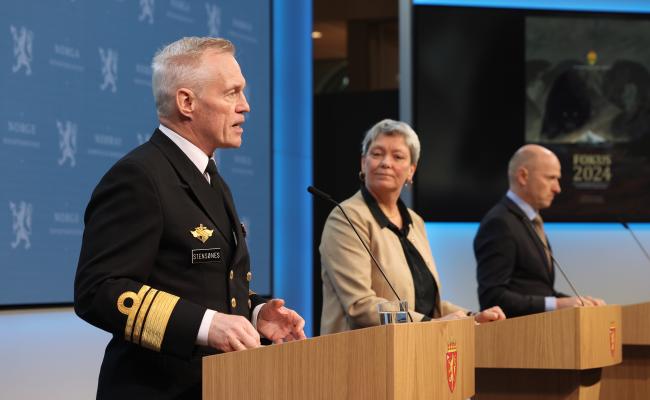Norway to Invest in Defense-Oriented Science and Innovation in the North
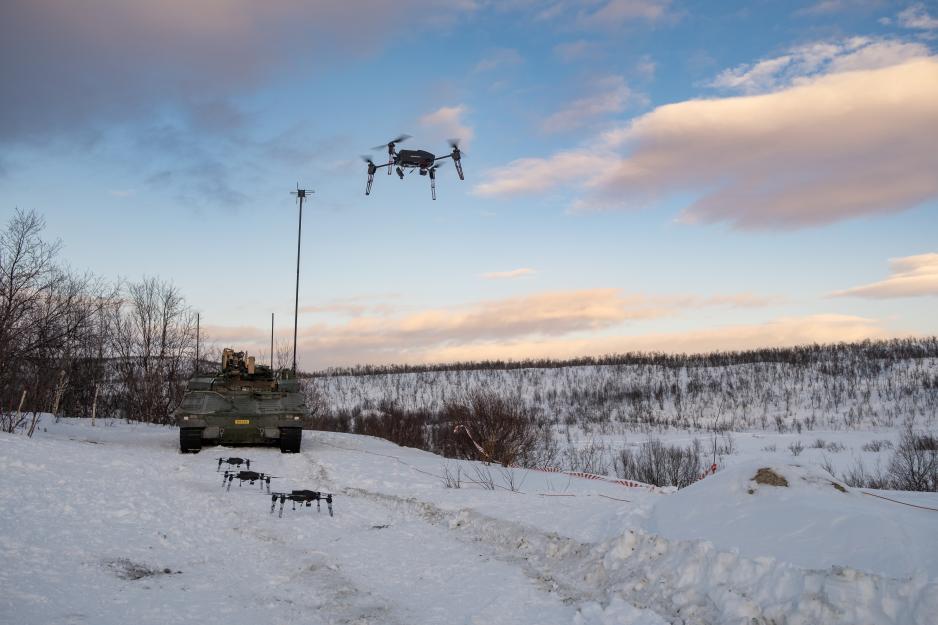
A drone swarm is controlled from a CV90 combat vehicle in Finnmark, Northern Norway, during the exercise Nordic Response 2024. Here, these capacities are operated by forces from 'Tomorrow's Combat Unit' (ed. translation) at the Norwegian Army Land Warfare Centre, which closely cooperates with the Norwegian Defense Research Establishment (FFI). In time coming, the FFI will organize more continuous innovation activities in Northern Norway. (Photo: Ole-Sverre Haugli/the Norwegian Armed Forces)
Development of defense-related technology and knowledge in Northern Norway is underway as part of the government's new long-term plan for the Armed Forces. “This will increase the ability for defense, security and preparedness in the region,” says Norwegian MoD.
On Friday, Norway's government presented its proposal to parliament on how the national defense sector should be organized, developed and funded for the next 12 years.
Among the suggested measures to strengthen the Armed Forces is the establishment of new research and development operations (R&D) in Northern Norway.
This will be organized by the Norwegian Defence Research Establishment (FFI), which prefers the region's largest city, Tromsø, as the hub.
"Such an investment in the North will increase the ability for defense, security and preparedness in the region. Northern Norway is the Armed Forces' most important operational area – and an important starting point for allied activity. Settlement and activity in the North is strategically important to the Armed Forces," says Norwegian MoD Bjørn Arild Gram (Center).
The initiative is referred to as technology and knowledge intensive. It is meant to contribute to regional robustness and trigger research-based innovation through civilian-military and interdisciplinary cooperation.
Furthermore, the activity is meant to create ripple effects for the expertise and business development in Northern Norway.
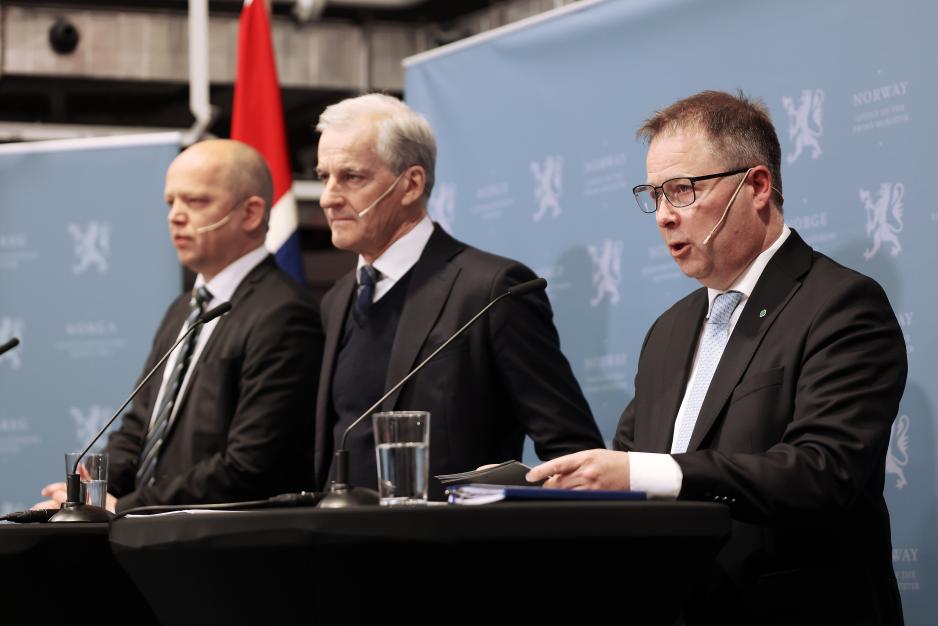
"Developments within security policy and demography increase the significance of settlement and activity in the region," reads the Norwegian government's long-term defense plan regarding the new R&D measure in the North. Here, the plan is presented by (from the right) MoD Bjørn Arild Gram (Center), PM Jonas Gahr Støre (Labor), and MoF Trygve Slagsvold Vedum (Center) on Friday. (Photo: Torbjørn Kjosvold/the Norwegian Armed Forces)
In the works
The government maintains that "the establishment will focus on High North-related subjects and have a clear outward profile toward the civilian and business sectors."
The initiative's professional profile is still being devised. Space operations, information and communications technology, and autonomy are put forward as relevant fields.
When it comes to the geographical center of gravity, as mentioned, FFI considers Tromsø in Troms county as the most suitable location. This is mainly due to the potential for recruitment of researchers and collaboration with other R&D institutions and local businesses.
Among the city's most relevant institutions for cooperation are UiT – the Arctic University of Norway, the Norwegian Polar Institute, FRAM – High North Research Centre for Climate and the Environment, and Kongsberg Satellite Services (KSAT).
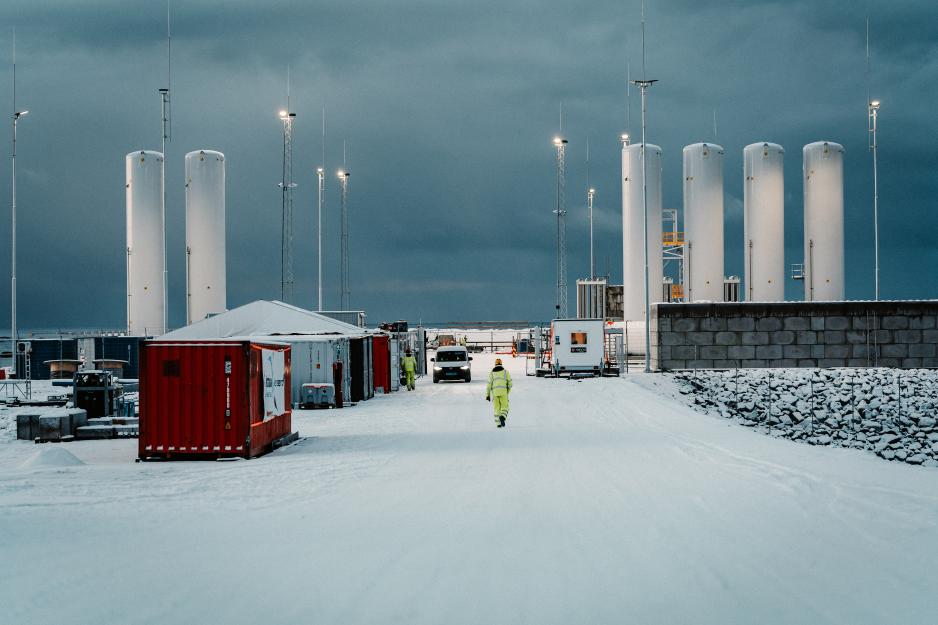
FFI's establishment in the North is also linked to the government's new plans for Andøya, Northern Norway, as this island has an air station and a new spaceport (photo). Andøya is to be made into a base for long-range drones, as well as being central in developing the Armed Forces' space operations and ability for allied reception. (Photo: Isar Aerospace/Andøya Space)
Branches
Although Tromsø is likely to be the center of the initiative, the government emphasizes it must build on and strengthen existing initiatives for innovation and R&D in other places in Northern Norway.
According to the long-term defense plan, the localization is to be further assessed and specified in cooperation with relevant actors.
It is also pointed out that the FFI establishment in the North can be seen in context with the government's new plans for Andøya, Nordland county, and prioritization of outer space.
"The FFI is a military technological institute focusing on mathematical, natural science, and technological subjects. An investment in the North will also be able to benefit from other professional environments and contribute to strengthening small environments and individual researchers at relevant institutions in Northern Norway. Examples of this include climate and security, total defense, and the application of technology," writes the government.
Climate change, technology development, and a more complex threat environment are changing what it takes to defend Norway.
Alternates in the civil-military
With this new investment, the government also seeks to break down barriers between the civilian and military sectors.
The idea is that relevant actors should be able to interact across these sectors without compromising security.
To achieve this, there is a need for civilian R&D environments that can handle classified information and researcher expertise that can be security-cleared.
"Climate change, technology development, and a more complex threat environment are changing what it takes to defend Norway and who must cooperate to do so," MoD Gram points out and continues:
"This places higher requirements for the sector's ability to look ahead, be flexible, and quickly adapt to new challenges."
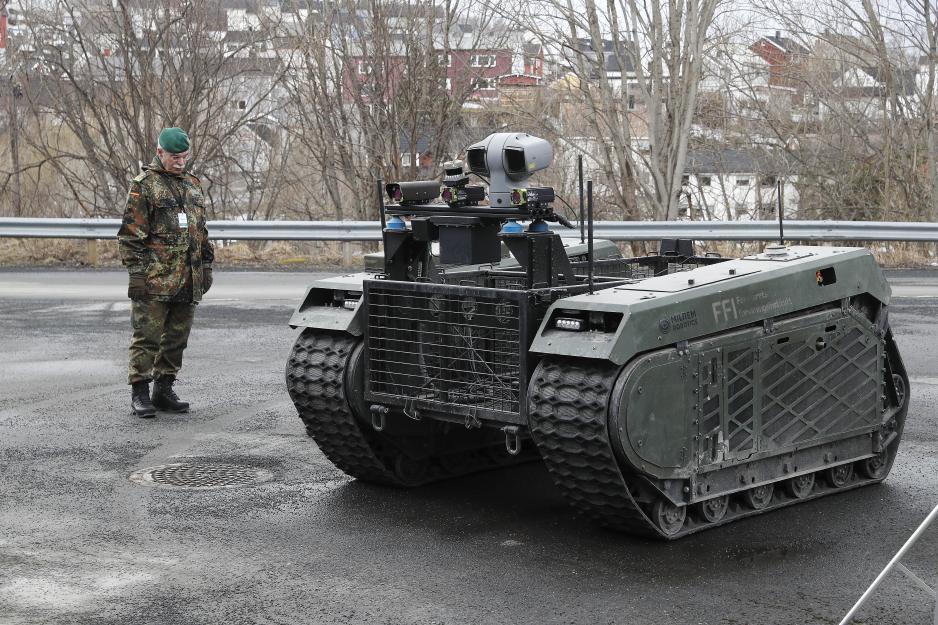
The FFI showcases a remote-controlled vehicle in Narvik, Northern Norway, during the exercise Cold Response 2022. The then Commander of NATO Allied Joint Force Command Brunssum, General Jörg Vollmer, inspects the vehicle. (Photo: Torbjørn Kjosvold/the Norwegian Armed Forces)





